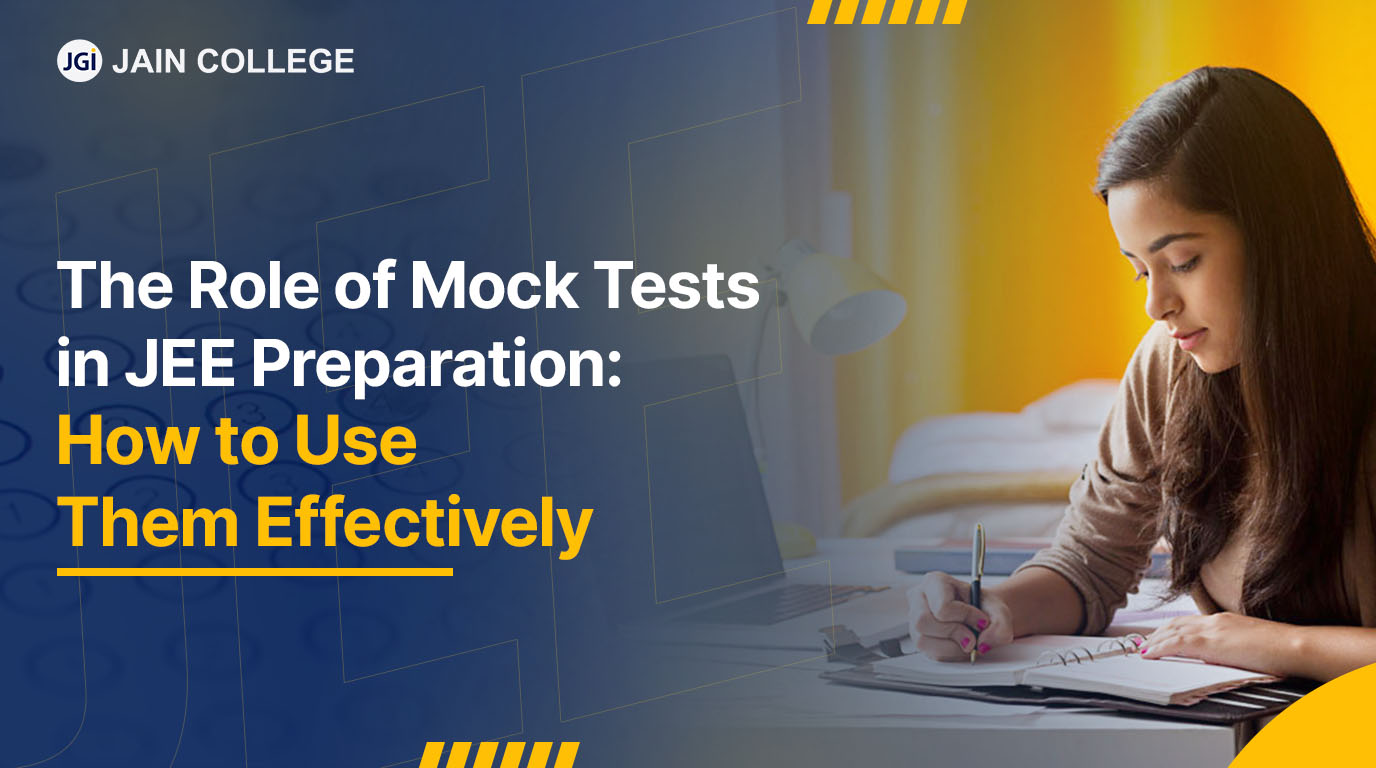
The Joint Entrance Examination (JEE) is one of the most challenging exams for aspiring engineers in India. Success in JEE requires a firm grasp of concepts and strategic preparation. Mock tests are crucial in this process, helping students evaluate their performance, manage time effectively, and build exam confidence. Mock tests can significantly improve problem-solving skills and reduce exam-day anxiety when used correctly
In this article, let us explore what are mock tests and the importance of mock tests in JEE preparation and learn some of the important tips on using them effectively.
Mock tests are practice exams designed to simulate the actual JEE exam. These tests follow the same pattern, syllabus, and difficulty level as the real exam, helping students familiarise themselves with the test format. They serve as a tool for self-assessment, enabling students to evaluate their preparedness, improve accuracy, and refine time management skills. By regularly taking mock tests, aspirants can identify their weak areas and work on them before the final exam.
To make the most of mock tests, students should follow a structured approach:
Mock tests play a crucial role in JEE preparation by providing a structured approach to exam readiness. Their key benefits include:
Also Read: The Importance of NCERT Text Books in JEE - 2025 Preparation
Also Read: Top Strategies to Tackle Difficult Subjects in JEE.
By incorporating mock tests into JEE preparation strategically, students can significantly enhance their problem-solving skills, time management, and overall performance in the exam.
Thus, by integrating mock tests effectively into students' JEE preparation strategy, you can boost confidence, enhance accuracy, and maximise students' exam performance.
Mock tests are an indispensable tool for JEE preparation, providing students with a clear understanding of their strengths and weaknesses. Students can enhance their chances of success by analysing performance, improving time management, and refining exam strategies.
However, simply taking mock tests is not enough—effective use through regular practice, detailed analysis, and targeted revision is key.
With the right approach, mock tests can be the stepping stone to achieving a high score in JEE.
All the Best!
Shape Your Future with JAIN College's Integrated Programmes!
With expert guidance from top partners like ALLEN, you can succeed in competitive exams like JEE, KCET, COMEDK, and NEET.
Mock tests help students assess their preparation level, identify weak areas, improve time management, and build exam confidence. They simulate the real exam environment, allowing students to get accustomed to the pressure and question patterns.
It depends on your preparation stage. Initially, taking one mock test per week can help track progress. Increasing the frequency to two to three tests per week can be beneficial as the exam approaches.
Both are important. Full-length tests help with endurance, time management, and exam strategy, while section-wise tests help strengthen individual subjects and concepts.
After each test, review incorrect answers, understand the mistakes, and revisit the related concepts. Identify recurring errors, track improvement over multiple tests, and adjust study plans accordingly.
By taking regular mock tests, students can practice allocating time efficiently to different sections, ensuring they complete the paper within the given timeframe without unnecessary stress.
Yes. Scoring low initially is common. Instead of feeling discouraged, focus on learning from mistakes and improving with each test. Mock tests are meant for practice, not for determining final scores.
No. Both are essential. Previous years' papers help understand past trends, while mock tests prepare students for newer question patterns and enhance exam-taking strategies.
Understand that fluctuations in scores are normal. Focus on progress rather than perfection, set realistic improvement goals, and track your overall growth over time.
Since JEE is conducted online, taking online mock tests is highly recommended. However, offline tests can be helpful for conceptual practice and problem-solving.
Revise incorrect questions, note key mistakes, and strengthen weak topics. Avoid passive reading—actively solve similar questions to reinforce concepts.

JAIN PU College, a part of the renowned JGI Group, is committed to empowering students with quality education.
Beyond academics, the college ensures its online content reflects the same standard of excellence. Every blog and article is meticulously vetted and proofread by subject matter experts to ensure accuracy, relevance, and clarity. From insightful educational topics to engaging discussions, JAIN PU College's content is crafted to inform, inspire, and add value to its readers, reflecting the institution's commitment to intellectual growth and innovation.
View all Blogs